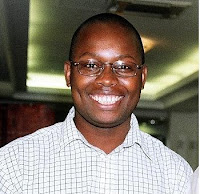EC Consultation on Food Security Policy
In August 2010, the European Commission (EC) embarked on a consultative process, through a discussion paper, on its Food Security Policy for developing countries. The following comments were provided.
The need for a comprehensive EU Policy on Food Security as it relates to developing countries is long overdue. However, this policy needs to be combined with a reform of the current EU's Common Agriculture Policy (CAP). The CAP regulates the payment of agricultural subsidies and programmes and constitutes 48% of the EU's budget.
For now, I provide herewith feedback to three of the questions raised in the discussion paper:
Question 2. In your view, which are the main strengths and weaknesses of the current European Community / EU Member States action in the areas of agriculture and food security?
The main weakness of the current European Community / EU Member States action in the areas of agriculture and food security revolve around the EU’s Common Agriculture Policy (CAP), particularly as it relates to the provision of agriculture subsidies to promote agriculture in the EU, and the terms of agricultural trade as it relates to the phyto-sanitary requirements. The CAP’s provisions outlined above, among others are a major hindrance to the promotion of agriculture in developing countries in that they skew the balance of trade in favour of the EU. This is and has been a major disincentive for sustained investments in agriculture in developing countries. While developing countries are making every effort to promote agriculture and food security, the continued existence of the above mentioned EU policies will continue to be a cause for declining investments in agriculture in developing countries thereby exacerbating food insecurity. For example, a recent call, through the African Union’s (AU) New Partnership for Africa’s Development (NEPAD) Comprehensive Africa Agriculture Development Programme (CAADP) for a minimum of 10% African Government’s budgetary allocation to agriculture is a step in the right direction on the part of developing countries. However, as a major trading partner for Africa, the EU’s CAP in its current form will continue to be a stumbling block to the promotion of agriculture and food security in Africa and other developing countries - simply put, developing countries' agriculture products cannot compete in the current world agricultural trading frameworks.
Question 7. What role do you see, if any, for the EU development policy to contribute to increased food production in developing countries and the availability of food (directly and/or indirectly)? And how could animal and plant health best be integrated in all pillars of food security policies and strategies?
(a) The EU should support greater and sustained investments for the development of infrastructure in developing countries – these include better roads, railway lines, airports and telecommunications. These are necessary push factors for the promotion of agriculture and achievement of food security in developing countries.
(b) The EU should help facilitate better market linkages with developing countries – the market linkages should be based on fair terms of trade. For far too long, agriculture products have not received a fair deal in terms of producer prices.
(c) The EU should promote value addition for agriculture products where they are produced in developing countries – the continued policy of accepting to buy only raw materials from developing countries, has to a large extent been the reason for developing countries not getting a fair deal in agriculture trade. Why can’t the EU import processed tea or coffee or rubber from developing countries?
Question 8. Which, in your views, are the main policy constraints and opportunities in developing domestic/regional trade markets in developing countries, in particular for south-south integration? Do you consider that the EU should play a role in such development and if so, which one?
Economic Partnership Agreements (EPAs) promoted by the EU have been a major concern for most developing countries. The EPAs have been viewed as counter-productive to the spirit of fostering regional integration among developing nations. The EPAs have been seen as a major source of divisions among developing nations in that as individual nations, developing countries have had weakened bargaining power in-so-far as trade agreements are concerned with the EU. Is the EU going to allow itself to be seen as a using “divide and rule tactics” in its bid to foster trade with developing countries? While the EU is a good model for a unified trading block or regional integration, the EPAs are seen as weakening efforts aimed at fostering similar integration and co-operation among developing nations. For example, by splitting the African Caribbean and Pacific (ACP) trading bloc into six EPAs sub-regions, the EU is working against the South-South co-operation.
Kennedy B. Lweya, PhD
August 2010
Labels: EC Food Security Policy



